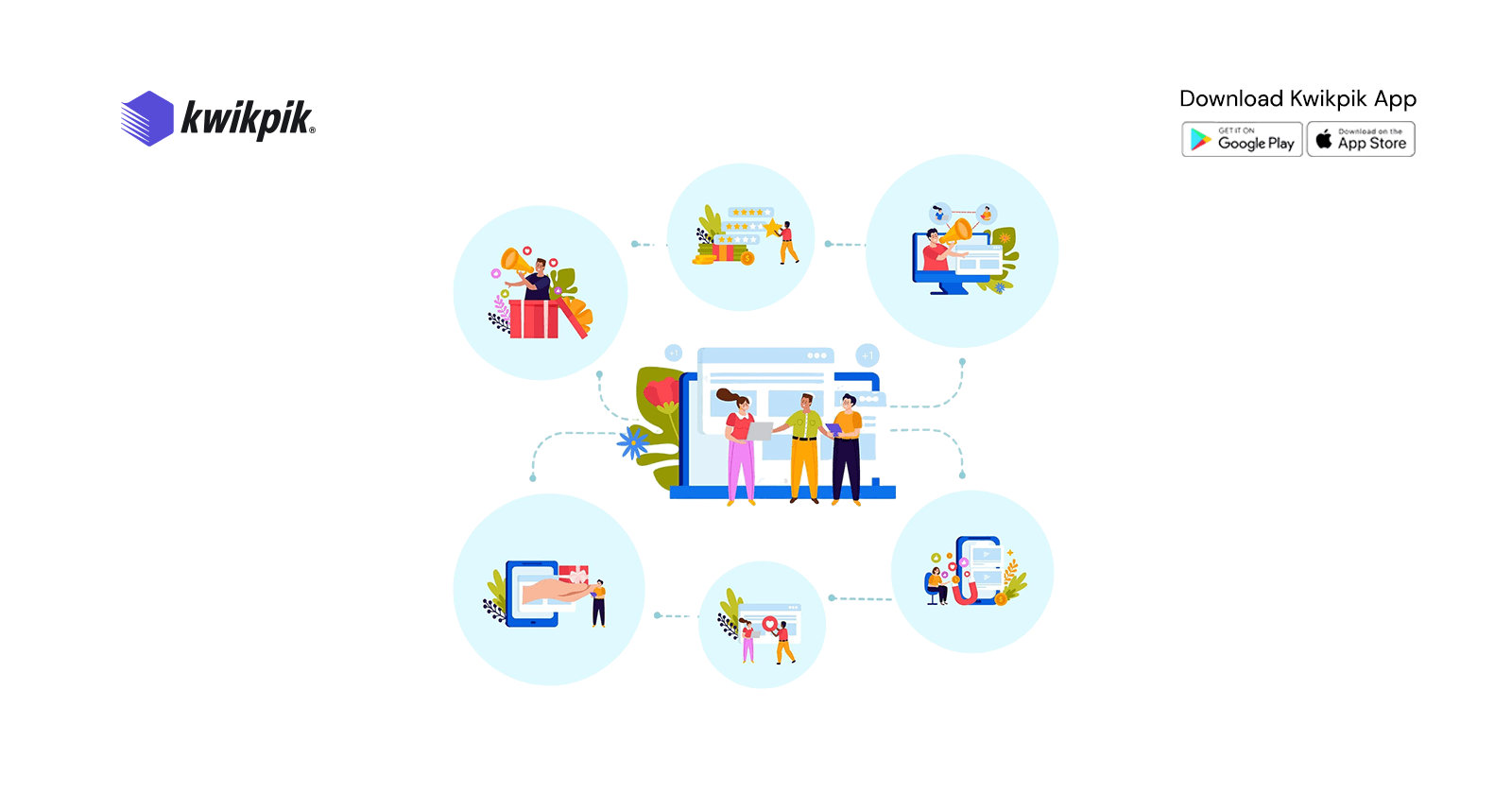
Multichannel Selling: How To Decide on Sales Channels for Your Business
5 mins read
When it comes to marketing, businesses are no longer confined to one platform or method of selling. They are now trying different sales channels. Multichannel selling enables you to reach a broader audience, maximize sales opportunities, and future-proof your business.
But how do you choose the right sales channels for your business?
According to Statista, in the United States alone, multichannel online retailers drove over $350 billion in sales in the year 2020, a figure that highlights the growing dominance of this strategy.
Are you still wondering if expanding to multiple sales channels is the right move for your business? This guide explores the key channels in a multichannel selling strategy, the benefits and challenges businesses face when selling across platforms, and also resources to help you thrive.
What Is Multichannel Selling?
Multichannel selling refers to offering your products or services on multiple platforms or channels. This could include your website, marketplaces, social media platforms like Instagram, TikTok, Facebook, etc, and even physical retail stores.
People Also Read:
Benefits of Multichannel Selling
Choosing the right sales channels can boost your revenue and enhance your customer experience. Here’s how:
1. Customer Reach
Each channel opens up a unique audience base, allowing your business to cater to customers with different shopping preferences.
2. Brand Visibility
Being present across various platforms builds brand recognition, helping potential customers remember and trust your brand.
3. Revenue Potential
With more touchpoints, you create additional opportunities to convert customers, resulting in higher sales.
Challenges of Multichannel Selling
While the benefits are compelling, multichannel selling also comes with challenges. These include:
1. Inventory Management
Managing stock across multiple channels can lead to overselling or stockouts if not handled carefully.
2. Consistent Branding
Ensuring your messaging, visuals, and overall brand identity remain consistent across channels is critical but demanding.
3. Channel Costs
Some platforms, like marketplaces, charge transaction fees that can affect your profits if you are just a beginner and on a budget.
People Also Read:
How To Decide on the Right Sales Channels for Your Business
1. Understand Your Target Audience
Your customers should always be at the center of your decision-making. Ask yourself:
Where does your audience spend their time?
What platforms do they trust for shopping?
Are they more likely to purchase through marketplaces or a brand’s website directly?
For example, younger audiences might prefer shopping on Instagram, while older customers might feel more comfortable with Amazon.
2. Evaluate Your Product
Some products perform better on specific channels. For instance:
Handcrafted or unique items often thrive on Etsy.
Generic or branded products do well on Amazon.
Visual products like fashion or home decor excel on Instagram or Pinterest.
3. Review Competitors
Research your competitors to see which channels they use. Their success (or failure) on certain platforms can provide valuable insights into where your business might excel.
4. Factor in Operational Capabilities
Ask yourself:
Can you manage inventory across multiple platforms?
Do you have the resources to market and advertise on each channel?
Are you prepared to handle customer inquiries and returns from various sources?
5. Start Small and Scale
Begin with 1-2 channels to avoid spreading your resources too thin. Once you master these platforms and understand your customer’s preferences, expand into additional channels.
People Also Read:
Popular Multichannel Selling Platforms
Here are some of the most widely used platforms for multichannel selling:
1. Online Marketplaces
Amazon
eBay
Etsy
Aliexpress
Jumia
Konga
Jiji
Rakuten
Taobao
Flipkart
Ruby lane
Swappa
Poshmark
2. Social Media Platforms
Facebook Shops
TikTok Shop
Instagram Shopping
Pinterest Buyable Pins
LinkedIn Sales Navigator
3. E-commerce Websites (Platforms)
Shopify
WooCommerce
BigCommerce
Squarespace
Big Cartel
OpenCart
Adobe Commerce (Formerly Magento)
Square Online (Formerly Weebly)
Ecwid
Selar
Bumpa
Wix
4. Brick-and-Mortar Stores
They are physical retail locations where customers can visit in person to browse and purchase products. Unlike online stores, brick-and-mortar stores offer face-to-face interactions, shopping experiences, and immediate access to goods. Examples include grocery stores, clothing boutiques, electronics shops, and department stores.
These stores feature displays, shelves, and cash registers and may provide customer support or product customization services. Combining physical stores with online channels creates an omnichannel experience.
People Also Read:
4 Essential Ways To Simplify Multichannel Selling
Managing multiple channels can be overwhelming. Consider tools like this:
Inventory Management: We wrote an article on this, Check it out here.
Order Fulfillment: At Kwikpik, we offer this service to individuals and Businesses, to learn more, book a call with us here.
Social Media Management: Ocoya, Buffer, Sprout Social.
Conclusion
Multichannel selling is not about being everywhere but being where it matters. Focus on channels that align with your business goals and customer preferences. With the right strategy, you can maximize your reach, increase sales, and build a loyal customer base. By leveraging tools and optimizing your approach, your business can thrive.
Unlock Your Business Potential with Our Exclusive Marketing and Logistics Community
Are you ready to take your marketing strategies to the next level? Join our group of like-minded professionals and business owners, where we share actionable tips, expert insights, and proven techniques to grow your brand. Don’t miss the opportunity to connect, learn, and thrive! Click here to join now!
Who we are?
We are Nigeria's leading Delivery-as-a-Service (DaaS) provider, expanding across Africa and the Middle East. We don’t just help you craft marketing strategies; we also ensure your success by providing logistics solutions that make delivery easy and stress-free. We offer logistics solutions to both businesses and individuals. Also, we provide delivery and procurement services for retailers, grocery stores, fast-moving consumer goods (FMCGs), or small shop owners looking for reliable, on-demand procurement services. Click here to partner with us.
If you want to chat with the team, schedule a call here.
Download our app| Become a rider| Become a business partner| Visit our social channels


